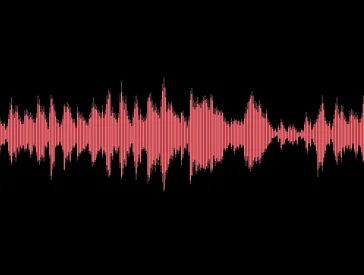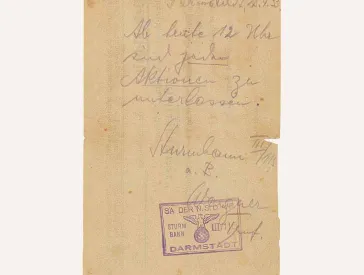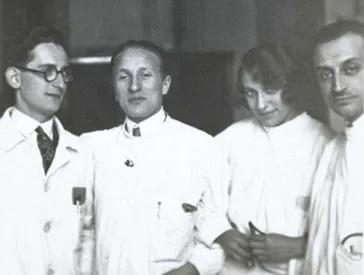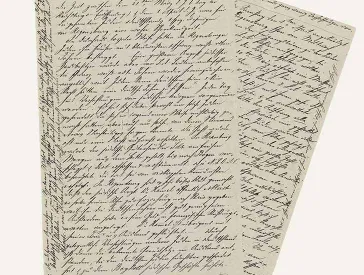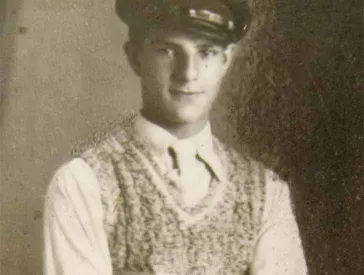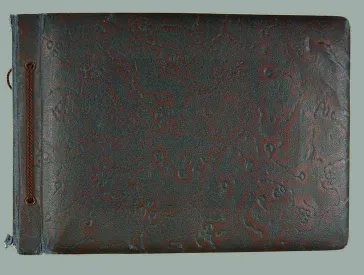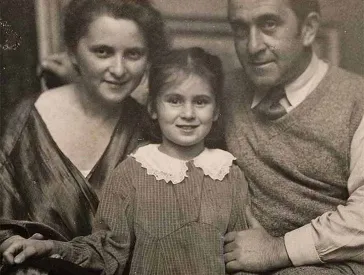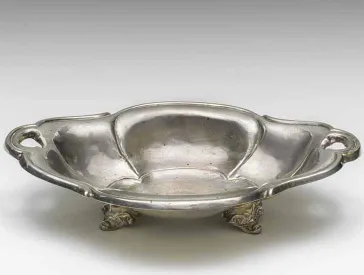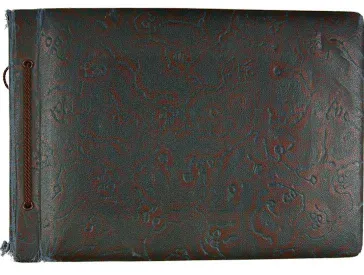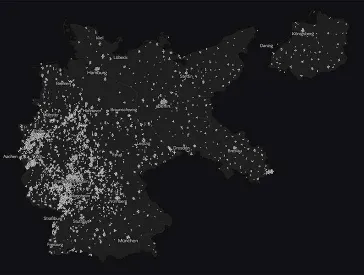Letter of Complaint by Jakob Steinhardt
The Topography of Violence project documents destroyed cemeteries, boycotted businesses, and physical attacks on Jews. However, our archives also contain cases of psychological violence. One example is the psychological terror inflicted on the Steinhardt family, which Jakob Steinhardt described in a letter.
Steinhardt was a well-known expressionist painter and graphic artist who was arrested by the SA in March 1933. At the time, he was living in a loft at Pariser Strasse 27 in the Wilmersdorf district of Berlin with his wife, Minni, and their nine-year-old daughter Josefa. He had moved there twelve years earlier.
Minni (1895–1977) and Jakob Steinhardt (1887–1968) with their daughter Josefa (b. 1927), Berlin, ca. 1933; Jewish Museum Berlin, accession 2003/153/5, gift of Josefa Bar-On Steinhardt. More documents and photos as well as works of art by Jakob Steinhardt can be found in our online collections
After fleeing Germany, Steinhardt wrote a letter of complaint that was evidently meant for the police authorities in Berlin. In it he describes his arrest and expresses his surprise at “how it is possible that entirely powerless and apolitical people can be subjected to such treatment.”
He was forced to flee by the events in the night of March 3. At four in the morning, five SA troopers repeatedly rang his doorbell. When Steinhardt opened up, they told him they had orders to search the apartment and arrest him, but did not produce a search warrant or arrest warrant.
Steinhardt called the police, who, upon arriving, forced the SA to leave the apartment. However, the SA troopers had already conducted their search. One and a half hours later, they showed up again, arrested Steinhardt in the presence of a member of the uniformed police (Schutzpolizei), and interrogated him in a private apartment. He was accused of operating a secret radio station, but was released a few hours later.
The following night, he was called and threatened on the phone:
“Well, Mr. Steinhardt, how did you like things yesterday? We’re very nice people, aren’t we? Have you realized now that it’s time you left for Palestine? We’re going to pay you frequent visits in the future. We have your keys and can get in any time we like. We’ll be able to deal with the doorman – he’s no threat.”
The following day, due to the extremely stressful situation and the SA’s threat to show up at any time, Minni Steinhardt suffered a nervous breakdown. Her doctor recommended that she leave the city, and on 7 March, the family traveled to the Yugoslavian spa town of Bled, where they remained a few days and Jakob Steinhardt wrote his letter. It is unclear whether he actually sent it to the Berlin police.
In mid-March the Steinhardts finally left for Palestine and settled in Jerusalem.
Sabrina Akermann
Jakob Steinhardt (1887–1968) with his daughter Josefa (b. 1927) in his studio, Berlin, ca. 1930; Jewish Museum Berlin, accession 2003/153/6, gift of Josefa Bar-On Steinhardt
Citation recommendation:
Sabrina Akermann (2020), Letter of Complaint by Jakob Steinhardt.
URL: www.jmberlin.de/en/node/7411
Online Project: Documenting Brutality (7)
